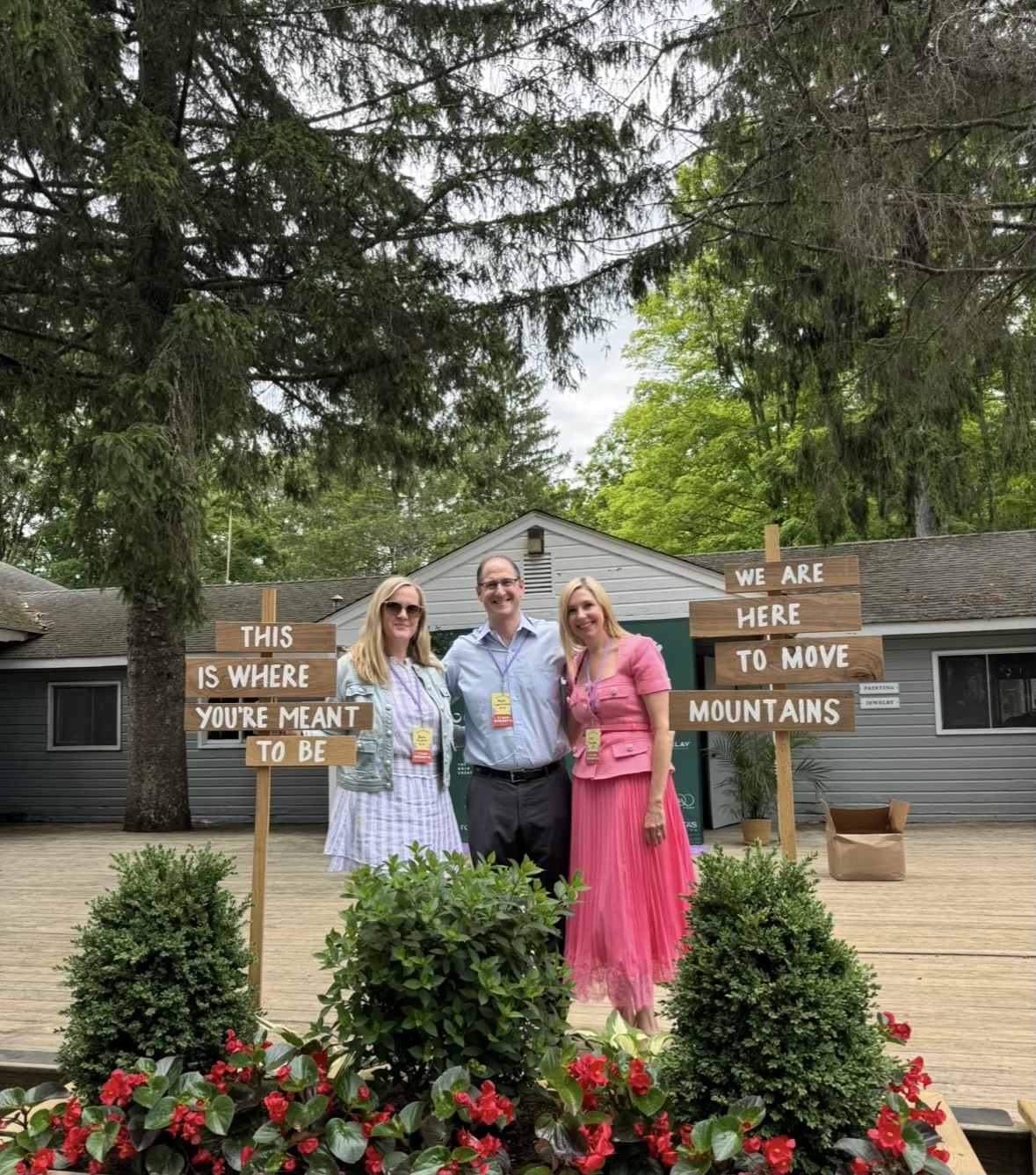Family Building as a Cancer Survivor and Previvor

Camp Breastie is an annual four-day summit where hundreds of people impacted by breast and gynecologic cancer come together for community, patient advocacy, and education. I was honored to join many of my fellow RMA of New York associates and The Chick Mission this June at the Camp Breastie event in Kent, Connecticut, to educate and empower cancer survivors and previvors on fertility options and family building.
Family Building a Cancer Survivor and Previvor
A previvor is the term used to refer to individuals with a hereditary predisposition to cancer (i.e. BRCA carrier). My fellow RMA of New York team and I individually met with cancer survivors and previvors from across the United States and Canada, and these individuals openly shared their unique journeys, which included fertility preservation, fertility treatment, and family building goals. I was so personally touched to listen to their stories and appreciate the amazing strength demonstrated to navigate their difficult journeys.
As fertility specialists, we provided insight and addressed specific questions regarding their unique fertility needs or family building options. From a personal standpoint, my wife is BRCA2 positive and together we have traveled the path of facing hereditary cancer, so I know firsthand the struggles, emotions and challenges that are encountered along the way. As an advocate for the hereditary cancer community, I have personally seen an increase over the past few years in the number of previvor women seeking counseling and information regarding family building options.
In general, fertility preservation with embryo or egg freezing is the best method to preserve reproductive potential in women of reproductive age and remains the most likely strategy to result in a subsequent pregnancy in women diagnosed with cancer, and therefore preserve fertility. With a delay in childbearing, combined with an improvement in cancer survival rates, more and more women have not had children at the time of cancer diagnosis.
Oncofertility 101
Oncofertility is the interdisciplinary field bridging oncology and reproductive medicine expanding fertility options for cancer survivors. Young women diagnosed with cancer are given the opportunity to safely preserve their fertility before undergoing chemotherapy, which is harmful to ovarian function, often resulting in menopause.
Hereditary Cancer with BRCA1 and BRCA2
BRCA1 and BRCA2 are hereditary cancer syndromes, which predispose individuals to certain types of cancer caused by these inherited genetic mutations. BRCA1 and BRCA2 mutations account for the majority of individuals with hereditary breast and ovarian cancer syndromes, but other hereditary mutations exist as well. BRCA carriers are at a higher risk of developing either breast or ovarian cancer at much younger ages than the general population, and therefore fertility and family planning may be a major concern. Children of BRCA mutation carriers also have a 50% chance of inheriting the mutation and associated risks. Women have the option of undergoing IVF with preimplantation genetic testing, currently referred to as PGT-M (formerly known as PGD- preimplantation genetic diagnosis), to screen embryos for a genetic mutation, and therefore prevent transmission of the genetic mutation to their offspring, and in this case end the BRCA cycle. PGT-M identifies embryos that are affected by the genetic mutation and those that are not. This allows couples to prevent a pregnancy with a specific genetic condition, such as BRCA. PGT-M is the only way to determine whether an embryo will be affected with a genetic condition prior to achieving pregnancy.
Women with a hereditary predisposition to cancer are faced with complex challenges and need health care professionals to not only discuss the medical implications of their carrier status and risk-reducing options, but to also share information regarding fertility preservation (egg and embryo freezing) and the option of IVF with preimplantation genetic testing to prevent transmission of the genetic mutation to their offspring. It is important for women with a hereditary predisposition to cancer to know that there are ways they can safely build a family. Women with a hereditary predisposition to cancer can benefit from reproductive counseling, which will improve their knowledge, and allow for more informed decision-making about reproductive options.
Learn more about RMANY's oncofertility oncofertility program - and please do not hesitate to reach out to the team if you have questions about your family building options as a cancer previvor or survivor.
